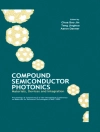This book offers readers a series of robotic methods for manipulating zebrafish larva, one of the most popular model vertebrates widely used in biomedical research and clinical applications. The authors leverage advanced control theories, image processing algorithms, and artificial intelligence to establish a robot-assisted automated or semi-automated zebrafish larva-targeted micromanipulation system for different experimental purposes. The methods presented are generic and can be translated to manipulate other types of biological objects, such as embryos or cells. Coverage includes topics that span the procedures of manipulating zebrafish larva, such as in-plane positioning, three-dimensional orientation, deformation-controllable immobilization, organ-targeted microinjection, whole-organism imaging, and high-throughput trajectory tracking of zebrafish larvae group movement.
Robotic Micromanipulation of Zebrafish Larva is written in a simple, clear, and easy-to-read style. It is an ideal reference for academic researchers and biomedical operators. It is also a valuable resource for students learning robotics, control and system theories, image processing, artificial intelligence, and biomedical engineering.
Jadual kandungan
Introduction.- Robotic micromanipulation of small organisms.- Robotic positioning of zebrafish larva.- Robotic orientation of zebrafish larva.- Robotic immobilization of zebrafish larva.- Robotic microinjection of zebrafish larva.- Visual detection of zebrafish larva.- Trajectory tracking of zebrafish larvae group.
Mengenai Pengarang
Songlin Zhuang received a B.E. in automation and a Ph.D. in control science and engineering from the Harbin Institute of Technology, China, in 2014 and 2019, respectively. From 2019 to 2020, he was a Postdoctoral Researcher with the Department of Mechanical and Industrial Engineering at the University of Toronto, Canada. Since October 2020, he has been a Postdoctoral Fellow with the Department of Mechanical Engineering at the University of Victoria, Canada. Dr. Zhuang’s research interests include robotic micromanipulation with biomedical and clinical applications and control theories with industrial applications.
Gefei Zhang received a B.E. degree and Ph.D. in control science and engineering from the Harbin Institute of Technology, China, in 2016 and 2022, respectively. He is currently an Assistant Professor with the Research Institute of Intelligent Control and Systems at the Harbin Institute of Technology. His research interests include robotic micromanipulation, image processing, and adaptive robust control.
Xinghu Yu received an M.M. in osteopathic medicine from Jinzhou Medical University, China, and a Ph.D. in control science and engineering from the Harbin Institute of Technology, in 2016 and 2020, respectively. He is currently the Chief Executive Officer of the Ningbo Institute of Intelligent Equipment Technology Co., Ltd., China. He has authored over ten technical papers for conference proceedings and refereed journals, including the IEEE Transactions journals, and has over 20 invention patents. His research interests include switched systems, intelligent control, and biomedical image processing.Huijun Gao received a Ph.D. in control science and engineering from the Harbin Institute of Technology, China, in 2005. From 2005 to 2007, he was a Postdoctoral Researcher with the Department of Electrical and Computer Engineering at the University of Alberta, Canada. Since 2004, he has been with the Harbin Institute of Technology, where heis currently a Chair Professor and the Director of the Research Institute of Intelligent Control and Systems. His research interests include intelligent and robust control, robotics, mechatronics, and their engineering applications. Dr. Gao is a Vice President of the IEEE Industrial Electronics Society and a Council Member of IFAC. He currently serves and has held editorial positions with several respected international journals, including Editor in Chief of the
IEEE/ASME Transactions on Mechatronics, Coeditor in Chief of the
IEEE Transactions on Industrial Electronics, and Associate Editor of
Automatica, the
IEEE Transactions on Cybernetics, and the
IEEE Transactions on Industrial Informatics. He is a Fellow of the IEEE and a Distinguished Lecturer of the IEEE Systems, Man, and Cybernetics Society. He is a member of the Academia Europaea.
Dongxu Lei received a B.E. degree in automation and an M.E. degree in control science and engineering from the Harbin Institute of Technology, Harbin, China, in 2018 and 2020, respectively, where he is pursuing a Ph.D. in control science and engineering. His research interests include image processing, data analysis, and control theory.
Mingsi Tong received a Ph.D. in mechatronic engineering from the Harbin Institute of Technology, Harbin, China, in 2016. He also concurrently studied at the National Institute of Standards and Technology, Washington, DC, USA, as a Guest Researcher during his graduate studies. He is an Associate Professor at the School of Mechatronics Engineering, Harbin Institute of Technology. His research interests include machine vision, pattern recognition, and surface metrology.
Weiyang Lin received B.S., M.Sc., and Ph.D. degrees in mechanical engineering from the Harbin Institute of Technology, Harbin, China, in 2006, 2008, and 2014, respectively. He is an Associate Professor with the Research Institute of Intelligent Control and Systems, Harbin Institute of Technology. His research interests include parallel manipulators, robotic motion control, and visual servo control.
Yang Shi received B.Sc. and Ph.D. degrees in mechanical engineering and automatic control from Northwestern Polytechnical University, Xi’an, China, in 1994 and 1998, respectively, and a Ph.D. in electrical and computer engineering from the University of Alberta, Edmonton, AB, Canada, in 2005. From 2005 to 2009, he was an Assistant Professor and Associate Professor in the Department of Mechanical Engineering at the University of Saskatchewan, Saskatoon, SK, Canada. In 2009, he joined the University of Victoria and is now a Professor in the Department of Mechanical Engineering, University of Victoria, Victoria, BC, Canada. His current research interests include networked and distributed systems, model predictive control (MPC), cyber-physical systems (CPS), robotics and mechatronics, navigation and control of autonomous systems (AUV and UAV), and energy system applications. Dr. Shi is a member of the IEEE IES Administrative Committee and the IES Fellow Evaluation Committee during 2017-2019; he is the Chair of the IEEE IES Technical Committee on Industrial Cyber-Physical Systems. Currently, he is Co-Editor-in-Chief for IEEE Transactions on Industrial Electronics; he also serves as Associate Editor for several other journals, including Automatica, IEEE Transactions on Control Systems Technology, IEEE/ASME Transactions on Mechatronics, and IEEE Transactions on Cybernetics. Prof. Shi is the General Chair of the 2019 International Symposium on Industrial Electronics (ISIE) and the 2021 International Conference on Industrial Cyber-Physical Systems (ICPS). He is a Fellow of IEEE, ASME, Engineering Institute of Canada (EIC), and Canadian Society for Mechanical Engineering (CSME), and a registered Professional Engineer in British Columbia, Canada.












